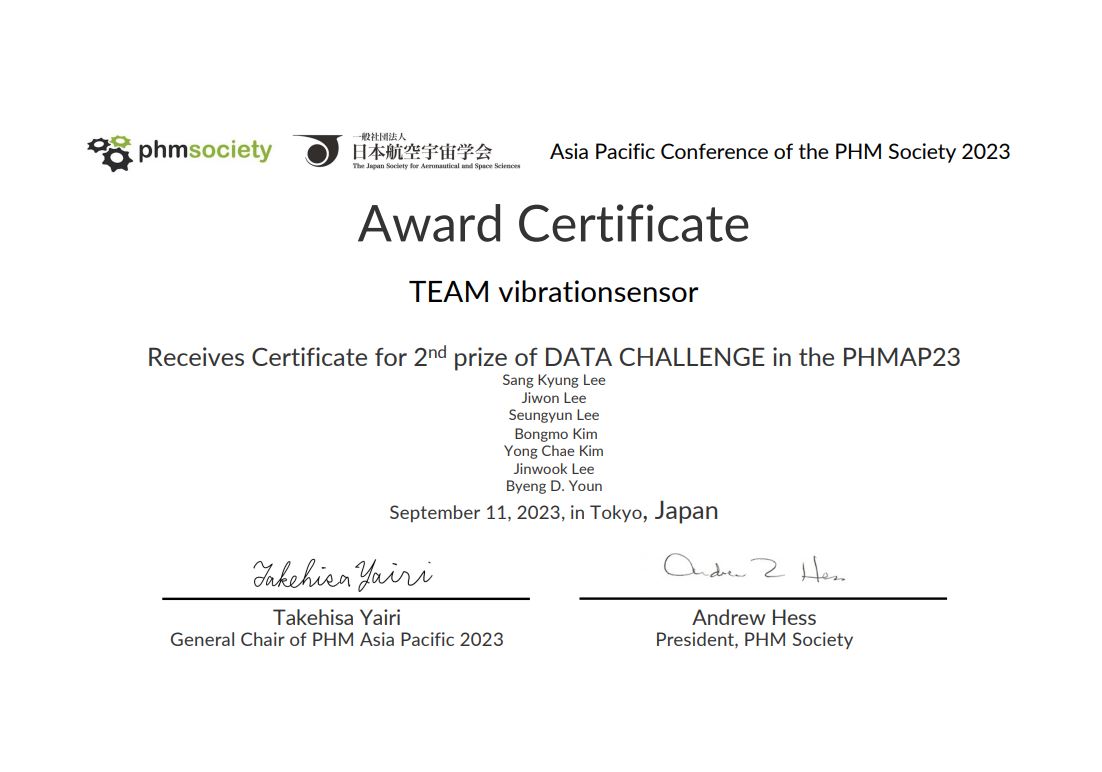Department News
Professor Yoon Byung-dong's Research Team Achieves 2nd Place in PHMAP 2023 Data Challenge"
Author
김진주
Date
2023-12-11
Views
305
 The Laboratory for System Health & Risk Management, led by Professor Yoon Byung-dong in our department, achieved a remarkable feat by securing 2nd place at the PHM Data Challenge during the Asia Pacific Conference of the Prognostics and Health Management 2023 held in Tokyo, Japan, from September 11th to 14th, 2023.
The Laboratory for System Health & Risk Management, led by Professor Yoon Byung-dong in our department, achieved a remarkable feat by securing 2nd place at the PHM Data Challenge during the Asia Pacific Conference of the Prognostics and Health Management 2023 held in Tokyo, Japan, from September 11th to 14th, 2023.The PHM Data Challenge is an international competition organized annually by the prestigious 'PHM Society,' a global authority in the field of prognostics and health management for industrial facility health prediction and management. Teams from renowned companies, schools, and research institutes in the Asia-Pacific region participate each year, analyzing real industrial data generated in industrial settings to compete in predicting fault types and fault occurrence times for the given equipment. In this competition, Professor Yoon's research team, named the "vibrationsensor" team, secured the 2nd Place Winner position.
This year's challenges included predicting fault types using diverse valve pressure data acquired from spacecraft propulsion systems, classifying the locations of identified faulty valves, and estimating the severity of some faults—three tasks in total. Due to the limited amount of data provided in this competition and the need to estimate severity not included in the training data, the team adopted a hybrid approach combining machine learning and physical domain knowledge. Particularly noteworthy was the integration of physical domain knowledge to construct a regression model, resulting in the ability to estimate severity with over 99% accuracy for faults not present in the training data.
Regarding this achievement, Professor Yoon remarked, "With the advent of the Fourth Industrial Revolution, industrial data is rapidly increasing, and the economic impact of improving industrial facility availability, product quality, industrial safety, and productivity through industrial data analysis and prediction exceeds 50 trillion won annually." He added, "Through this competition, we havece again proven that South Korea's PHM technological capabilities are among the world's best, demonstrating the potential for our country to become a global leader in the Fourth Industrial Revolution.

